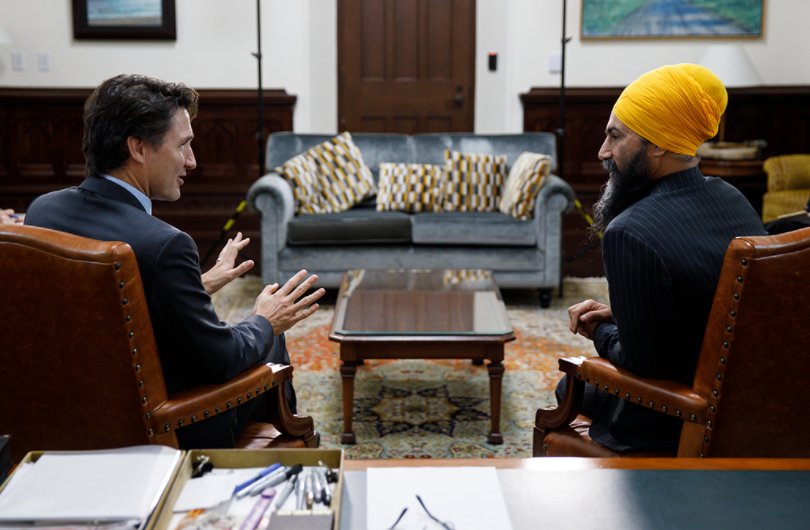On Monday, the Liberals and NDP announced a confidence-and-supply agreement that would see the NDP back the Liberals in confidence votes, including the next four budgets, keeping the government in power until 2025.
The media release from the Prime Minister’s Office says the deal includes support for various programs including pharmacare, dental care and housing, along with “tackling the climate crisis” and “reconciliation”.
It also commits to “making democracy work for people” without fulfilling the hope of electoral reform and proportional representation.
It’s not clear at this moment what this agreement means in terms of dollars.
In 2019, a federal advisory panel led by Dr. Eric Hoskins said that a fully implemented pharmacare program would cost about $15 billion a year.
And last year, the NDP said a dental-care plan for uninsured Canadian families who have a household income of less than $90,000 would cost about $1.5 billion.
With the next federal budget expected in the first week of April, we may learn how much of that $16.5 billion has been secured for these programs.
We will also see what is being planned for the military budget.
Last week, Defence Minister Anita Anand said: “I personally am bringing forward aggressive options which would see [Canada], potentially, exceeding the two per cent level, hitting the two per cent level, and below the two per cent level.”
In 2017, the Liberal government promised to increase spending by 70 per cent over a 10 year period. That would mean spending increases from $18.9 billion in 2016/17 to $32.7 billion by 2026/27. In 2020-21, Canada’s military budget was about $23.3 billion.
Based on Canada’s gross domestic product (GDP) in 2020, two per cent of GDP could bring that budget to about $41.6 billion a year.
If the two per cent spending threshold is reached, the increase in military spending could exceed the $16.5 billion cost of fully implemented pharmacare and dental-care programs.
Tackling the climate crisis
While the deal promises to tackle the climate crisis, it does not appear to address the issue of the Trans Mountain tar sands pipeline now being built on unceded Secwepemc lands without free, prior and informed consent.
When the Liberal government bought the Trans Mountain pipeline (for $4.5 billion) in May 2018 from Texas-based Kinder Morgan, it was projected the cost to expand that pipeline to 890,000 barrels per day would cost $7.4 billion.
During the federal election last August, Singh, who says he opposes the expansion of the pipeline, commented: “Once we form government, we’ll look at the asset and make the best determination on what to do moving forward.”
By the time of Singh’s statement, the $7.4 billion construction budget had increased to $12.6 billion.
Last month, Trans Mountain Corp. confirmed the cost would be $21.4 billion (again, a figure significantly higher than the $16.5 billion needed for fully implemented pharmacare and dental care programs).
Last month, Finance Minister Chrystia Freeland said there will be no more public funds put towards the project. She added: “TMC will secure necessary funding to complete the project through third-party financing, either in the public debt markets or with financial institutions.”
The Liberal-NDP deal promises to develop “a plan to phase-out public financing of the fossil fuel sector, including from Crown corporations, including early moves in 2022.”
It does not, however, appear to exclude the federal government facilitating about $10 billion in private investment for this pipeline that once in service would operate beyond 2050, the year that the Liberals and NDP promise “to achieve net-zero emissions” in the agreement announced today.
While many will see hope in various aspects of the Liberal-NDP agreement, and arguably the Liberals would have spent billions more on war and pipelines anyways, the lack of attention to these issues should remain a significant concern for Indigenous rights, environmental and anti-war movements.



